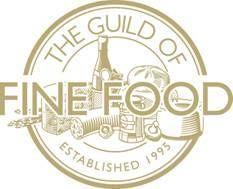
If you want to reduce expenditure on food and drink during the credit crunch, you’re better off deserting the supermarkets in favour of your local deli, farm shop or farmers’ market, Guild of Fine Food director Bob Farrand said today.
“You’ll eat better, and often cheaper, and you’ll help sustain our small food and farming business through what promises to be their toughest test yet.
“Supermarkets are not as cheap as they would have us believe,” Farrand added. “The hype they generate is little more than window dressing designed to cover up the fact they cynically view the current credit crunch as the perfect opportunity to increase market share and eliminate yet more local competition.
“Yes, they shave a few pence of some basic lines but if you want the best value on quality fresh meat, fish or vegetables, you’ll generally do better in your local farm shop or farmers’ market and when it comes to top notch cheeses, charcuterie, preserves and baked goods, your local deli may cost a few pence more but they won’t try to sell you mutton dressed as lamb.”
Farrand was hitting out against claims by supermarkets that they’re the ones taking the pain of price reductions in order to ‘help beleaguered consumers,’ when, he said, “on the supplier side, everyone knows who is taking the real pain, and it’s not the supermarkets.”
The Guild is concerned the credit crunch will reverse the progress of the past decade in reducing food miles and the growth of small food and farming businesses. “Supermarkets talk the talk when it comes to stocking local foods but the reality is hype,” Farrand said. “Waitrose is probably the best of the bunch but even in their new ‘market town format’ stores, only 100 out of 10-15,000 lines are local. That’s less than 0.01 per cent. For larger supermarkets, the percentage is even lower - that’s not what I call supporting small, local food and farming businesses.”
He believes the current price war between leading supermarkets is a cynical move to kill off more delis, butchers, farm shops and farmers’ markets. “In a time of recession, there has been no decrease in new store developments in areas already drowning in supermarkets and in the few towns left untouched by the blight of a giant Tesco or Asda, planning applications pushed through to local councils starved of cash and unable to fight protracted appeals shows no sign of diminishing,” Farrand said.
“When we came out of the recession in the mid 1990s, regional food and drink was at its lowest point ever. BSE, e-Coli and Foot & Mouth collectively triggered a massive awareness in local food and the need to protect farmers and small food producers and we now have vibrant farmers’ markets around the country, twice as many independent delis and over 600 brand new farm shops opened in the last five years. If we lose them, we also lose the last vestiges of our great British food culture.”



